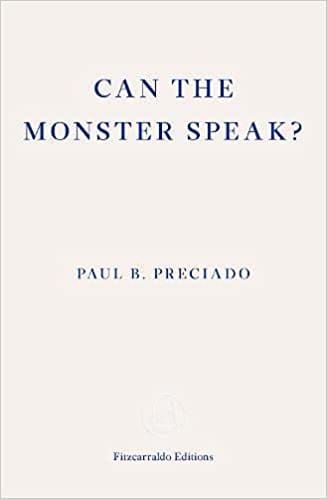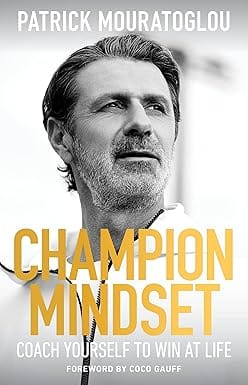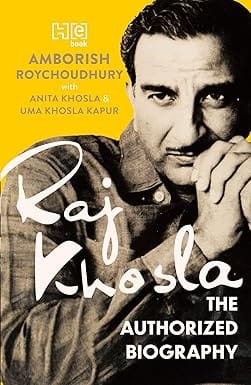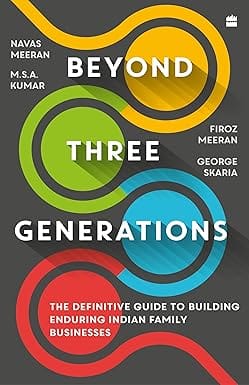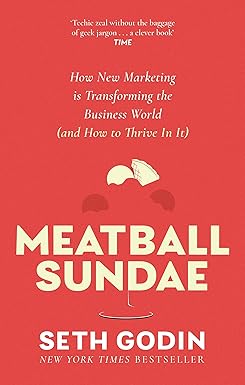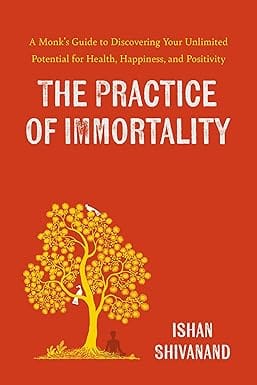-
Contemporary Fiction
- Contemporary Fiction
-
Children
- Children
-
Comics & Graphic Novels
- Comics & Graphic Novels
-
Non-Fiction
- Non-Fiction
-
Fiction
- Fiction
In November 2019, Paul B. Preciado was invited to speak in front of 3,500 psychoanalysts at the École de la Cause Freudienne’s annual conference in Paris. Standing up in front of the profession for whom he is a ‘mentally ill person’ suffering from ‘gender dysphoria’, Preciado draws inspiration in his lecture from Kafka’s ‘Report to an Academy’, in which a monkey tells an assembly of scientists that human subjectivity is a cage comparable to one made of metal bars. Speaking from his own ‘mutant’ cage, Preciado does not so much criticize the homophobia and transphobia of the founding fathers of psychoanalysis as demonstrate the discipline’s complicity with the ideology of sexual difference dating back to the colonial era, an ideology which is today rendered obsolete by technological advances allowing us to alter our bodies and procreate differently. Further, Preciado calls for a radical transformation of psychological and psychoanalytic discourse and practices, arguing for a new epistemology capable of allowing for a multiplicity of living bodies without reducing the body to its sole heterosexual reproductive capability, and without legitimizing heteropatriarchal and colonial violence. Causing a veritable outcry among the assembly, Preciado was heckled and booed and unable to finish. The lecture, filmed on smartphones, ended up published online, where fragments were transcribed, translated and published with no regard for exactitude. Eighteen months on, Can the Monster Speak? Report to an Academy of Psychoanalysts is published in a definitive translation for the first time.
Review
‘Read here the words of a monster, brought to you unedited and without embellishment! Yes, it is true – the monster speaks! But he does not speak the language of castration and penis envy, nor is he fluent in lack and misrecognition. This monster speaks in his own words, and he does not speak as a subject, as an individual but rather as part of a constantly mutating “somatheque”. The monster announces the fall of the father, the end of Oedipus, the solidarity of the monsters. This short book is powerful, dangerous, important. Read it alone but share it with friends. Whisper its secrets and tell everyone its message –the monster of whom you speak, has left his cage.’
-Jack Halberstam, author of Trans*: A Quick and Quirky Guide to Gender Variability
‘Drawing on decades of radical trans theory, Preciado presents not just a searing critique of the psychoanalytic establishment, but also a bold challenge to it. Calling for a paradigm shift that will have an impact way beyond its intended field, Can the Monster Speak? demands its audience to think politically, granting new power to previously marginalized voices.’
-Juliet Jacques, author of Variations
‘The joy of reading Preciado, whether or not one has the theoretical tools to support or refute him, is the single and singular life that pulses in every word, and speaks to the individual within each of us and not – as all too often – to our persona.’
- Les Inrockuptibles
‘Written in a mutant language that owes much to Kafka, the master of metamorphoses, this radical text is a welcome insurrection again the psychoanalyst’s couch.’
- L’OBS
Praise for An Apartment on Uranus
‘Paul B. Preciado has the magic ability to fire off imperatives that don’t feel bossy, but rather incite us to join him in whatever crackling energy, urgent curiosity, and dynamic nomadism is flowing through him. Reading these chronological missives offers the real pleasure of Preciado’s company in time, and inspires us not just to stay with our trouble, but to greet it with unstoppable speech, complex solidarity, glitter, and defiance.’
- Maggie Nelson, author of The Argonauts
‘An arresting, bold and moving book about crossing boundaries – of body, sex, nation, species and language – by an important dissident of dualism.’
- Amia Srinivasan, author of The Right to Sex
About the Author
Paul B. Preciado is the author of An Apartment on Uranus, Counter-Sexual Manifesto, Testo Junkie: Sex, Drugs and Biopolitics and Pornotopia, for which he was awarded the Sade Prize in France. He was Head of Research of the Museum of Contemporary Art of Barcelona (MACBA) and Director of the Independent Studies Program (PEI) from 2011 to 2014. From 2014 to 2017 he was the Curator of Public Programmes of documenta 14. He is currently the Resident Philosopher at the Centre Pompidou and lives in Paris, France.
Frank Wynne has translated works by authors including Michel Houellebecq, Patrick Modiano, Jean-Baptiste Del Amo, Javier Cercas, Carlos Manuel Álvarez and VirginieDespentes. His work has earned various awards, including the IMPAC Dublin Literary Award and the Independent Foreign Fiction Prize; he has twice been awarded both theScott Moncrieff Prize and the Premio Valle Inclán.
- Home
- Non-Fiction
- Can The Monster Speak
Can The Monster Speak
SIZE GUIDE
- ISBN :9781913097585
- Author: Paul B Preciado
- Publisher: Fitzcarraldo Edition
- Pages: 88
- Format: Paperback
Book Description
In November 2019, Paul B. Preciado was invited to speak in front of 3,500 psychoanalysts at the École de la Cause Freudienne’s annual conference in Paris. Standing up in front of the profession for whom he is a ‘mentally ill person’ suffering from ‘gender dysphoria’, Preciado draws inspiration in his lecture from Kafka’s ‘Report to an Academy’, in which a monkey tells an assembly of scientists that human subjectivity is a cage comparable to one made of metal bars. Speaking from his own ‘mutant’ cage, Preciado does not so much criticize the homophobia and transphobia of the founding fathers of psychoanalysis as demonstrate the discipline’s complicity with the ideology of sexual difference dating back to the colonial era, an ideology which is today rendered obsolete by technological advances allowing us to alter our bodies and procreate differently. Further, Preciado calls for a radical transformation of psychological and psychoanalytic discourse and practices, arguing for a new epistemology capable of allowing for a multiplicity of living bodies without reducing the body to its sole heterosexual reproductive capability, and without legitimizing heteropatriarchal and colonial violence. Causing a veritable outcry among the assembly, Preciado was heckled and booed and unable to finish. The lecture, filmed on smartphones, ended up published online, where fragments were transcribed, translated and published with no regard for exactitude. Eighteen months on, Can the Monster Speak? Report to an Academy of Psychoanalysts is published in a definitive translation for the first time.
Review
‘Read here the words of a monster, brought to you unedited and without embellishment! Yes, it is true – the monster speaks! But he does not speak the language of castration and penis envy, nor is he fluent in lack and misrecognition. This monster speaks in his own words, and he does not speak as a subject, as an individual but rather as part of a constantly mutating “somatheque”. The monster announces the fall of the father, the end of Oedipus, the solidarity of the monsters. This short book is powerful, dangerous, important. Read it alone but share it with friends. Whisper its secrets and tell everyone its message –the monster of whom you speak, has left his cage.’
-Jack Halberstam, author of Trans*: A Quick and Quirky Guide to Gender Variability
‘Drawing on decades of radical trans theory, Preciado presents not just a searing critique of the psychoanalytic establishment, but also a bold challenge to it. Calling for a paradigm shift that will have an impact way beyond its intended field, Can the Monster Speak? demands its audience to think politically, granting new power to previously marginalized voices.’
-Juliet Jacques, author of Variations
‘The joy of reading Preciado, whether or not one has the theoretical tools to support or refute him, is the single and singular life that pulses in every word, and speaks to the individual within each of us and not – as all too often – to our persona.’
- Les Inrockuptibles
‘Written in a mutant language that owes much to Kafka, the master of metamorphoses, this radical text is a welcome insurrection again the psychoanalyst’s couch.’
- L’OBS
Praise for An Apartment on Uranus
‘Paul B. Preciado has the magic ability to fire off imperatives that don’t feel bossy, but rather incite us to join him in whatever crackling energy, urgent curiosity, and dynamic nomadism is flowing through him. Reading these chronological missives offers the real pleasure of Preciado’s company in time, and inspires us not just to stay with our trouble, but to greet it with unstoppable speech, complex solidarity, glitter, and defiance.’
- Maggie Nelson, author of The Argonauts
‘An arresting, bold and moving book about crossing boundaries – of body, sex, nation, species and language – by an important dissident of dualism.’
- Amia Srinivasan, author of The Right to Sex
About the Author
Paul B. Preciado is the author of An Apartment on Uranus, Counter-Sexual Manifesto, Testo Junkie: Sex, Drugs and Biopolitics and Pornotopia, for which he was awarded the Sade Prize in France. He was Head of Research of the Museum of Contemporary Art of Barcelona (MACBA) and Director of the Independent Studies Program (PEI) from 2011 to 2014. From 2014 to 2017 he was the Curator of Public Programmes of documenta 14. He is currently the Resident Philosopher at the Centre Pompidou and lives in Paris, France.
Frank Wynne has translated works by authors including Michel Houellebecq, Patrick Modiano, Jean-Baptiste Del Amo, Javier Cercas, Carlos Manuel Álvarez and VirginieDespentes. His work has earned various awards, including the IMPAC Dublin Literary Award and the Independent Foreign Fiction Prize; he has twice been awarded both theScott Moncrieff Prize and the Premio Valle Inclán.
Related Books
User reviews
NEWSLETTER
Subscribe to get Email Updates!
Thanks for subscribing.
Your response has been recorded.

India's Iconic & Independent Book Store offering a vast selection of books across a variety of genres Since 1978.
"We Believe In The Power of Books" Our mission is to make books accessible to everyone, and to cultivate a culture of reading and learning. We strive to provide a wide range of books, from classic literature, sci-fi and fantasy, to graphic novels, biographies and self-help books, so that everyone can find something to read.
Whether you’re looking for your next great read, a gift for someone special, or just browsing, Midland is here to make your book-buying experience easy and enjoyable.
We are shipping pan India and across the world.
For Bulk Order / Corporate Gifting
 +91 9818282497 |
+91 9818282497 |  [email protected]
[email protected]
Click To Know More
INFORMATION
POLICIES
ACCOUNT
QUICK LINKS
ADDRESS
Shop No.20, Aurobindo Palace Market, Near Church, New Delhi

